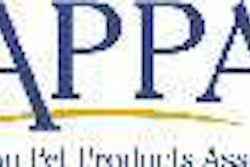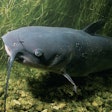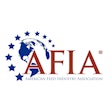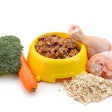Recently someone described to me what he sees as two basic regulatory approaches:
- If it's done right, all will be right-which seems to be the European Union (EU) model; or
- If all turns out all right, it must have been done right-the US approach.
Granted, this is a very simplistic view of a very
complicated issue. But it resonated with me in light of a key
piece of legislation pending in the US Congress right now: food
safety.
Inspired by 2007 recalls?
Though just passed by the US House of Representatives at the end of July, H.R. 2749 could be said to have been inspired at least partially by the petfood recalls of 2007. That string of events-and consumer reaction to them-along with a series of human food safety crises such as E. coli-contaminated produce, led Congress to enact the Food and Drug Administration (FDA) Amendments Act of 2007, imposing new responsibilities on FDA. That included establishing a registry for food and feed companies to report incidents of adulteration.
Shortly after the act's passage, an Interagency Working Group on Import Safety appointed by then US President George W. Bush issued a report calling for greater recall authority for FDA. After widespread Salmonella contamination of peanut products and other crises over the past year, President Barack Obama appointed a new Food Safety Working Group to recommend ways to upgrade laws and better coordinate the myriad US agencies with food safety oversight (11 in addition to FDA).
All the crises, legislative efforts and work of these groups fed into the new House bill, which would give FDA mandatory recall authority. The bill would also require more frequent inspection of processing plants and for companies to keep better safety records. Part of the financing for all these new initiatives would come from a US$500 annual fee for food producers.
Move to influence
While nothing will happen until the US Senate tackles its own version of a food safety bill, criticism of the House bill has included concerns that the producer fees and other new fees such as for reinspection and export certificates will just be passed on to consumers in the form of higher food prices.
The American Feed Industry Association (AFIA), which said it had input on the House bill-and a seat in the Food Safety Working Group-claimed success in "creating a series of firewalls between food and feed requirements, so any requirements specific and appropriate to human food regulation would not inadvertently impede the manufacture of livestock feed and petfood," read an AFIA press release.
But the association also urged its members and other industry professionals to carefully monitor food safety legislation as it moves forward. "It's vital for the livestock feed and petfood industries to be deeply involved in the evolution of these bills and move to influence the resulting national policy and regulations that will follow expected enactment," said Joel Newman, AFIA president and CEO.
By consumer demand
With health care reform and climate change taking priority for the US government this fall, the Senate bill is unlikely to move forward very quickly. But eventually some form of legislation will probably pass and be signed into law by Obama.
That law will be neither as sweeping as its proponents want nor as onerous as its critics fear. And it will likely not do everything right, as EU rules attempt, nor will it guarantee everything turns out all right, as US laws aim to do.
But the importance for petfood companies is that consumers, including pet owners, have been demanding more oversight and attention to this issue, and I believe they will react well to any petfood manufacturer that demonstrates it gets the intent of food safety measures. If you can show, as transparently as possible, how your ingredient selection, sourcing, testing and other procedures help ensure the safety, quality and health of your products, you should benefit in the marketplace, no matter what type of legislation is in effect.

















